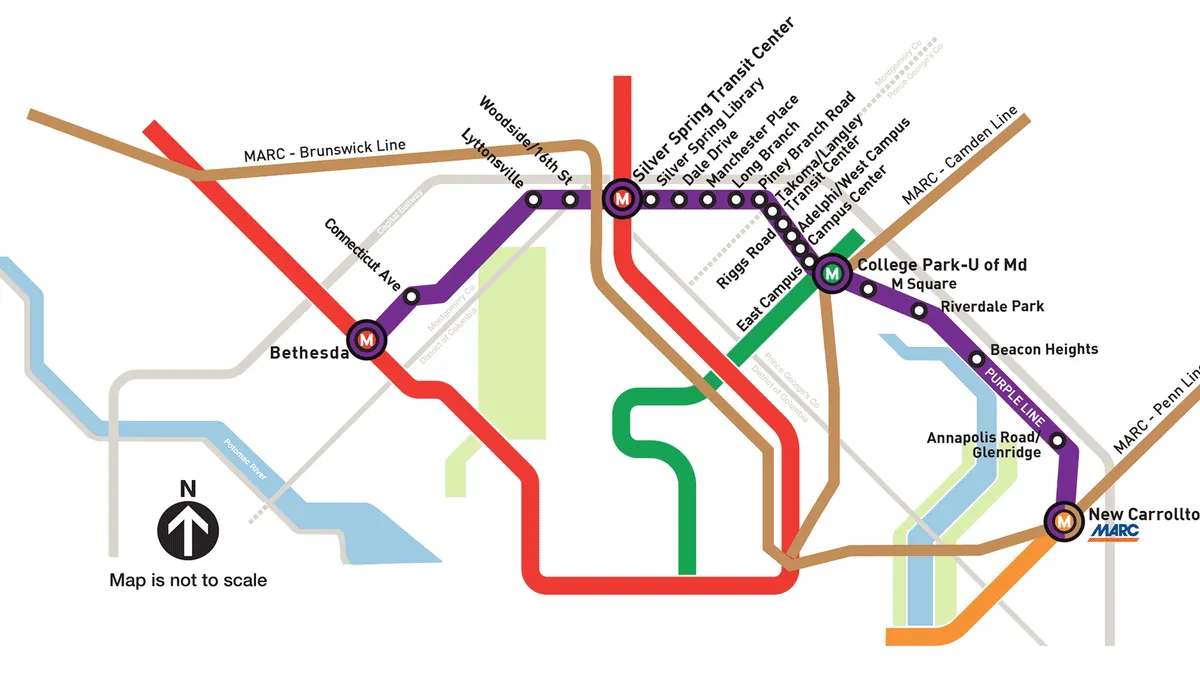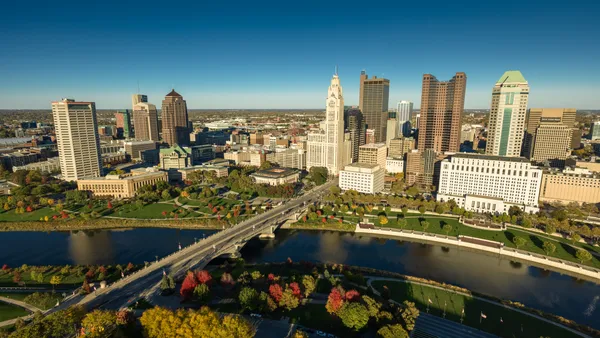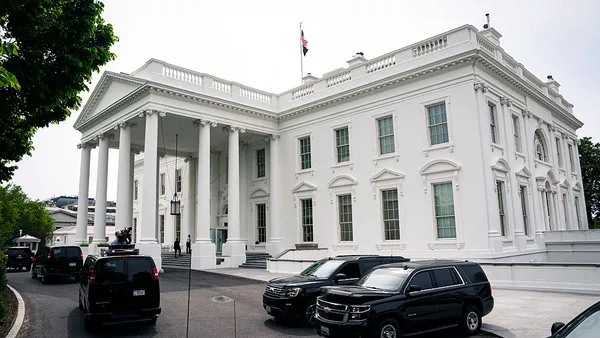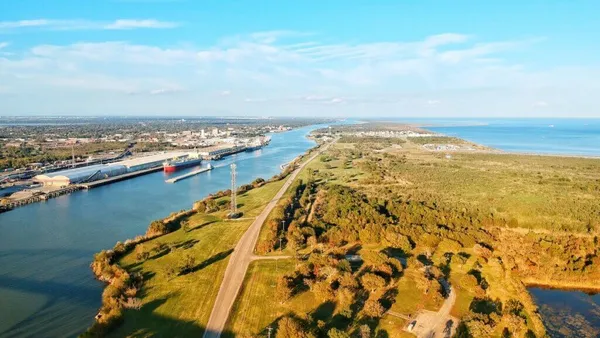Dive Brief:
- The U.S. Court of Appeals for the D.C. Circuit ruled that a decline in D.C.-area Metrorail ridership does not warrant an update to the environmental study for the $5.6 billion Purple Line project in Bethesda, MD, a decision that allows construction to continue, according to The Washington Post.
- The court shot down a legal challenge built around claims that Metro's diminishing ridership would negatively impact the Purple Line's rider numbers and that Maryland should invest in a rapid-bus service instead. The appeals court decision reverses a ruling made by U.S. District Judge Richard J. Leon.
- This, according to The Post, should put an end to the legal wrangling that has delayed progress on the Purple Line for a year, finally clearing a path for the project to make up time and move toward completion.
Dive Insight:
Earlier this year, the appeals court reinstated the Purple Line project's federal approval and allowed construction to begin pending this latest ruling. The decision also made it possible for Metro officials to re-secure a $900 million Federal Transit Administration grant.
In August 2016, Leon agreed with the Friends of the Capital Crescent Trail that the project did not adequately consider how Metro's ridership would affect its own, but that was just one claim by the advocacy group. It also expressed concern that the Capital Crescent Trail, a popular recreation spot for locals, would be ruined.
This case highlights the seemingly never-ending struggle between those who argue for development and those who want to preserve the environment, even when their opponent is the federal government. Efforts by the Trump administration to build a U.S.-Mexico border wall have come under fire for political and financial reasons, but environmentalists have also entered the fray.
In September, California Attorney General Xavier Becerra filed a lawsuit on behalf of the state and the California Coastal Commission alleging that the U.S. Department of Homeland Security didn't submit the required environmental studies before starting construction on wall prototypes in the San Diego area, using an expired immigration law as the basis for skipping that requirement.
Another group in Texas also is pushing back against the administration's plans to construct a 3-mile section of border wall through the Santa Ana National Wildlife Refuge along the Rio Grande River. According to The Texas Tribune, the refuge is home to more than 400 bird species and endangered wildcats, as well as hard-to-find sabal palm trees.














